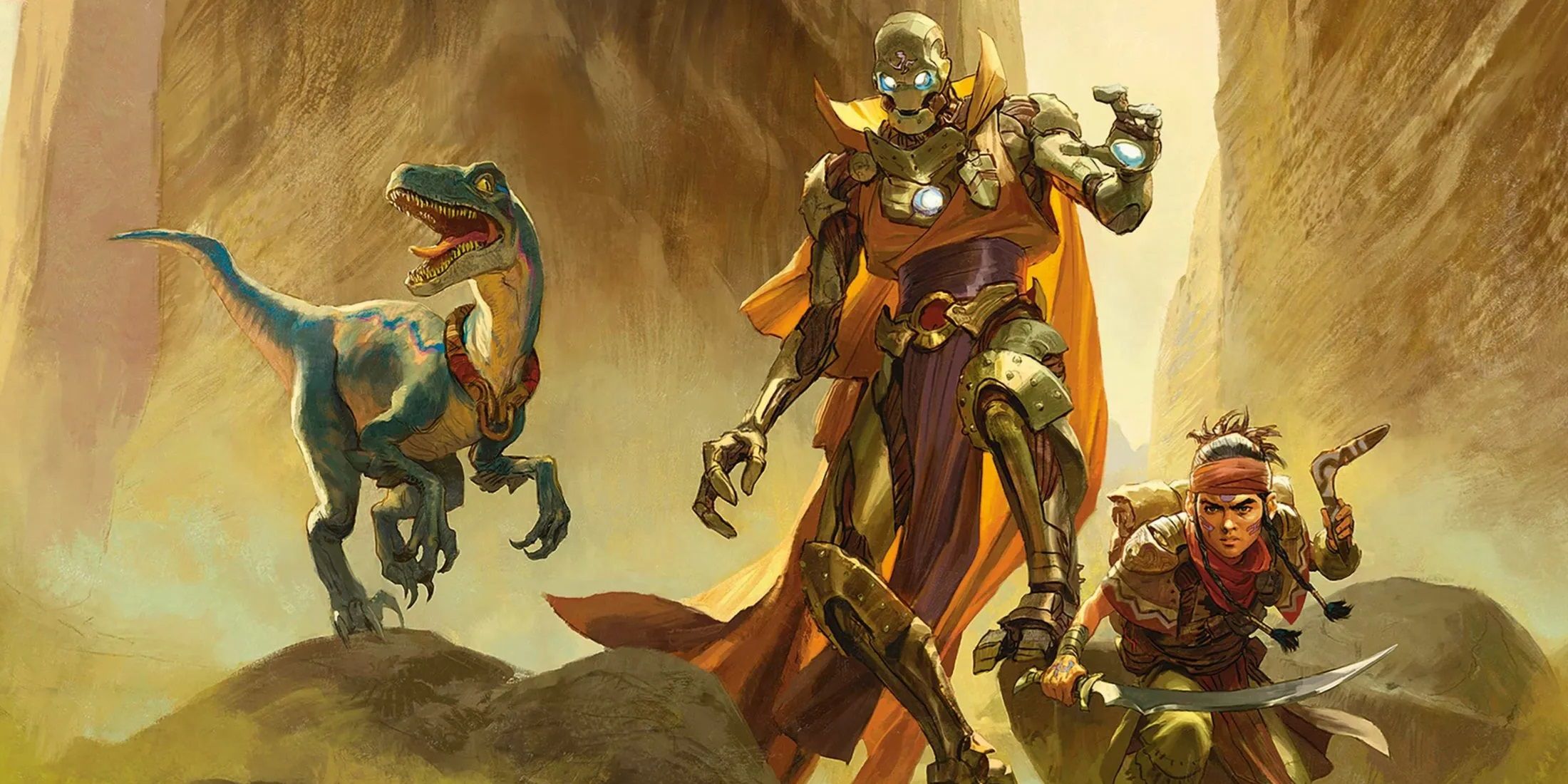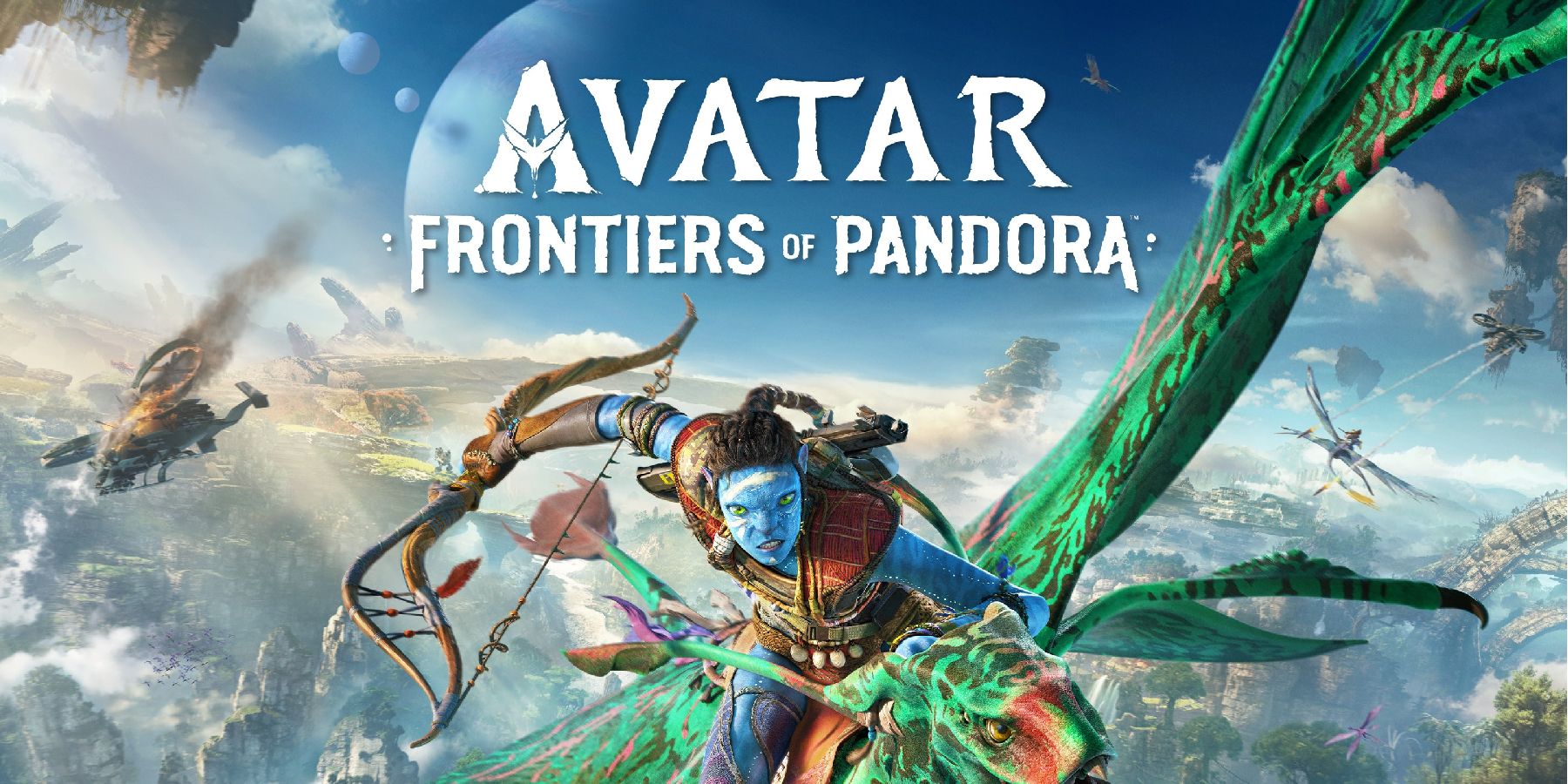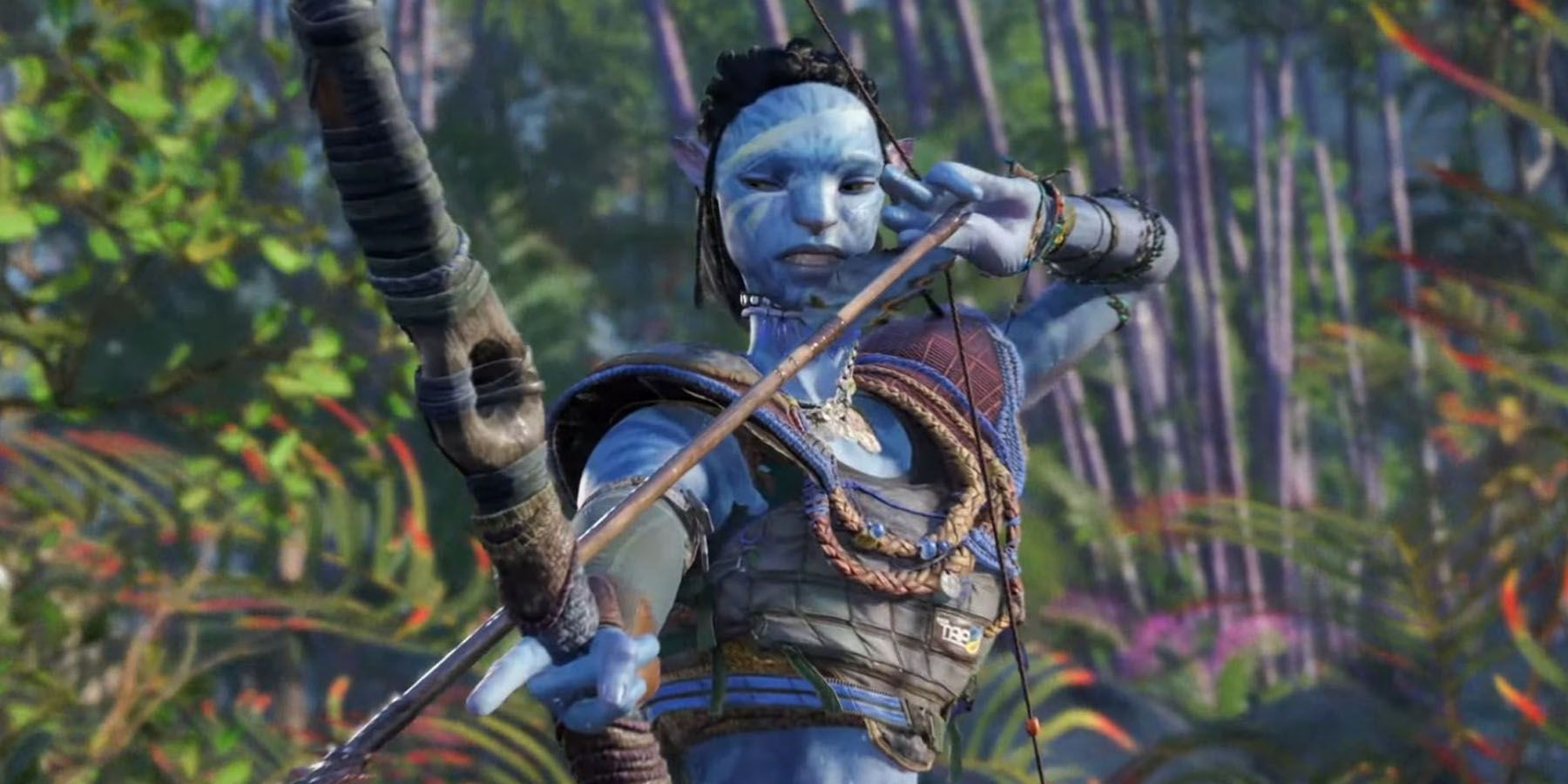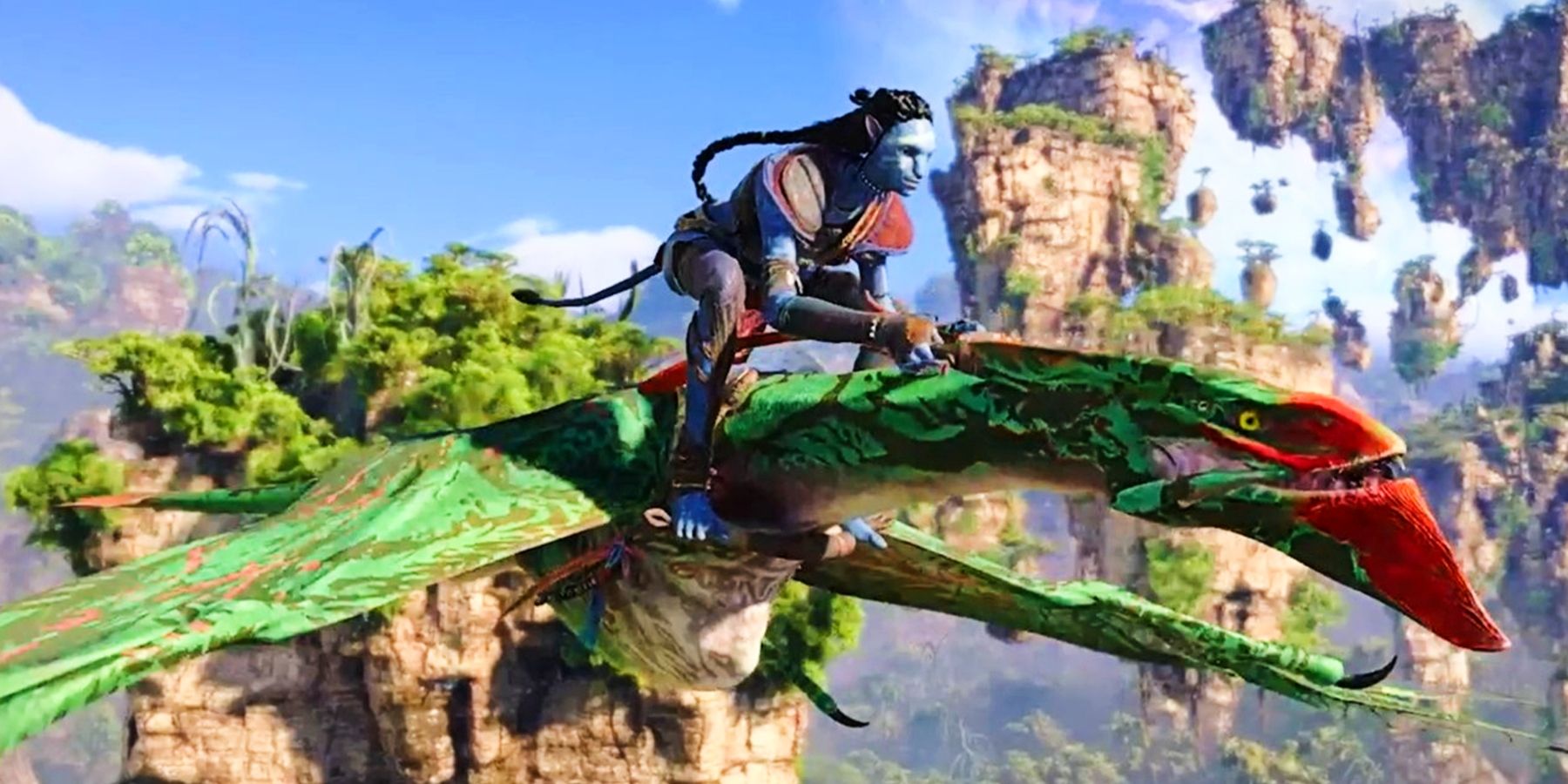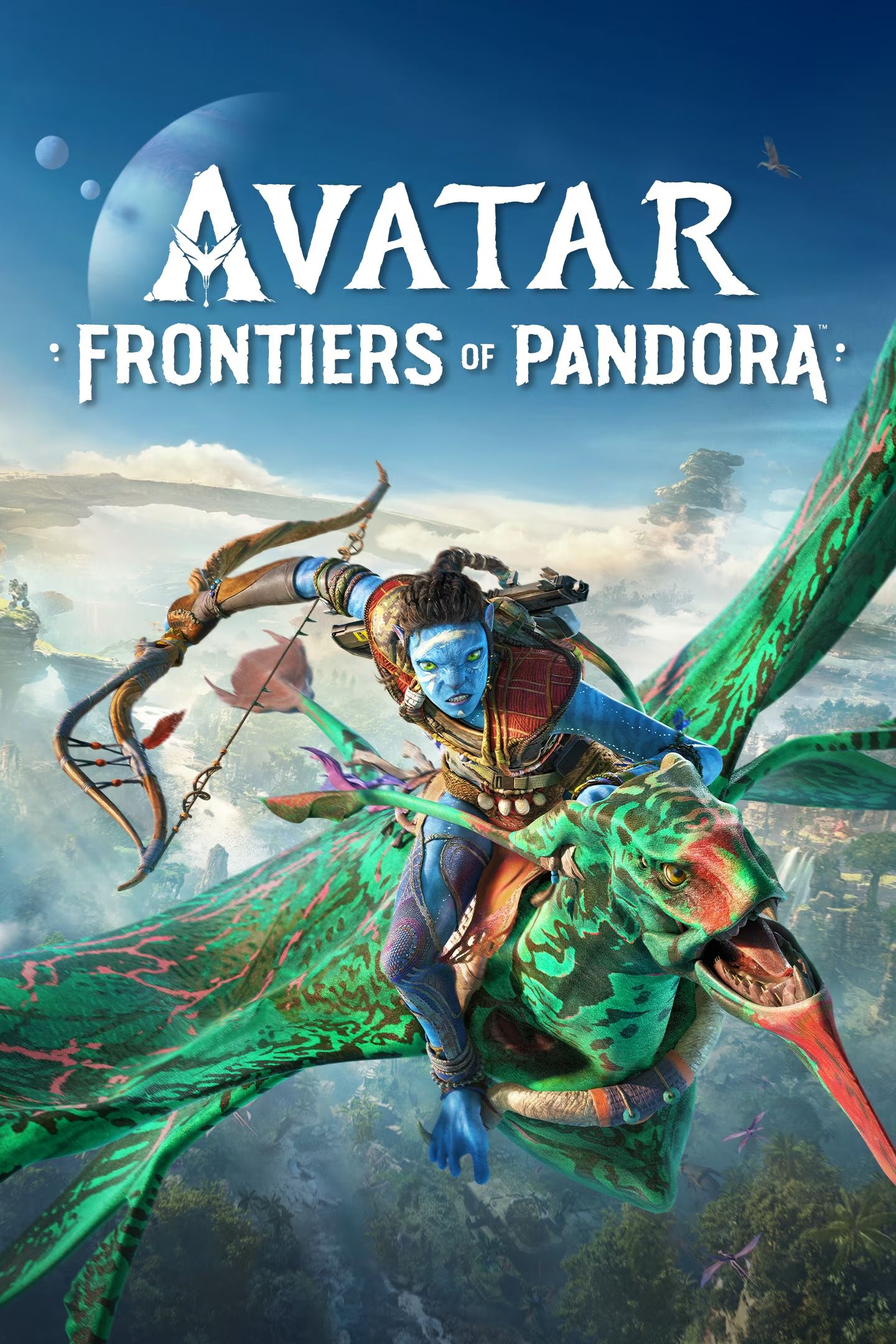Perhaps it was because the first official tie-in game didn’t review too well at the time or simply because it has taken over a decade for James Cameron to bring the franchise back to the spotlight; it's clear that the Avatar IP is due for a new video game adaption. There is simply too much potential for a good game set on Pandora. Now, in 2023, Avatar: Frontiers of Pandora is Ubisoft’s grand attempt at bringing Pandora to life, giving Cameron’s box-office-shattering franchise the video game treatment on the grandest scale possible. Unfortunately, Avatar: Frontiers of Pandora misses the mark and also happens to embarrass itself quite spectacularly.
Between providing little value to the IP or otherwise squandering Avatar’s themes of environmentalism into checklist items in service of the stale Ubisoft open-world formula, Frontiers of Pandora leaves little to enjoy for fans of the franchise and even less for anyone who wants to see these games evolve past Far Cry 3. Stunning to look at, tedious to play, and with nothing to say, Avatar: Frontiers of Pandora feels less like the game Cameron’s films deserve and more like a theme park ride that wears out its welcome far too soon.
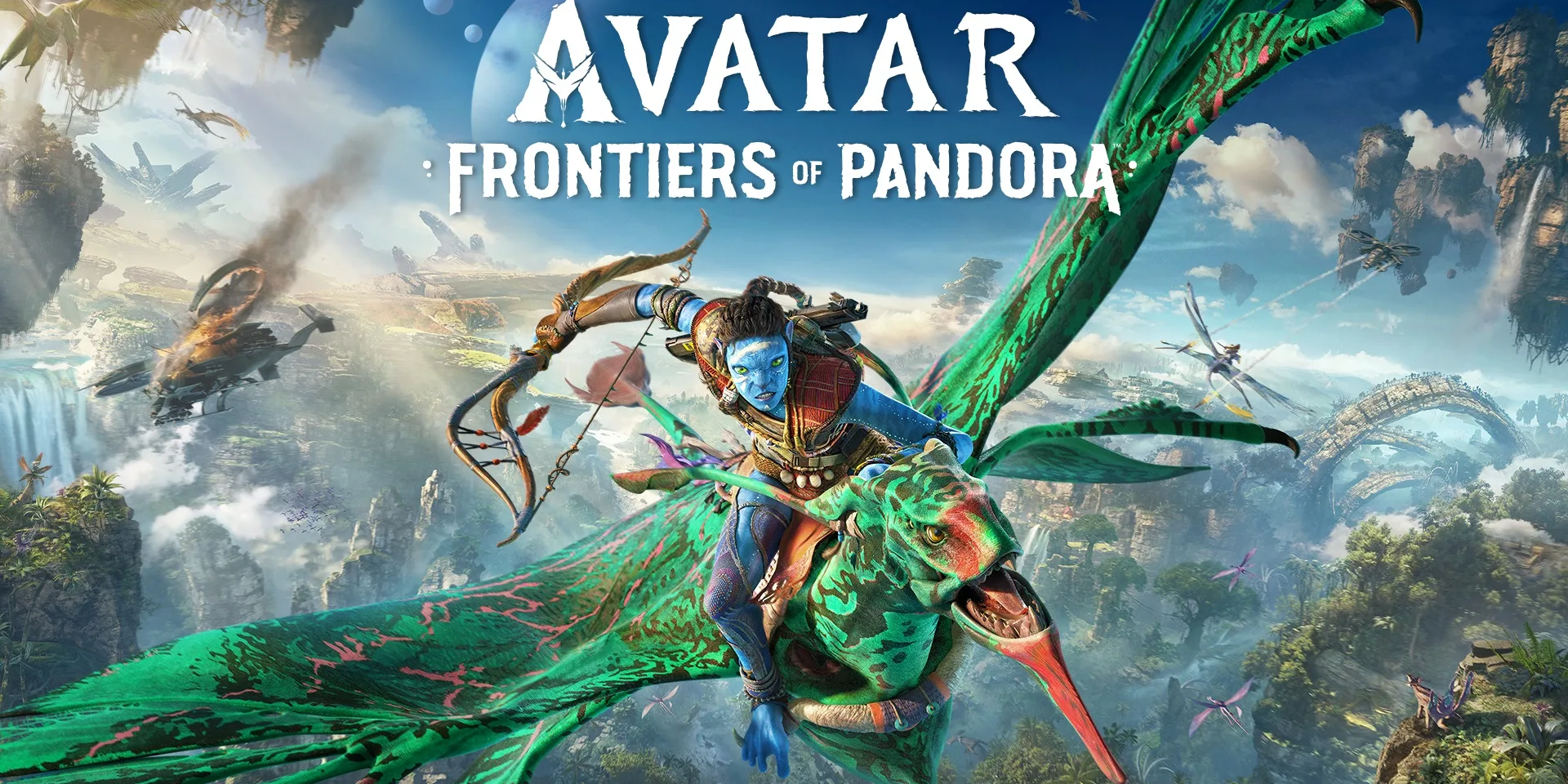
Avatar Frontiers of Pandora: 5 Things You Need to Know About the Ikran
Here's everything fans need to know about the Ikran in Avatar Frontiers of Pandora.
Credit where it’s due: Massive Entertainment did an incredible job with Pandora, bringing a graphical beauty to everything from the smallest flora in the rainforest to the imposing floating mountains that always crack through Pandora's layer of mist just right. The highest highs in all of Frontiers of Pandora come from the moments where players can simply take in the beautifully realized moon planet thanks to an attention to detail that is equal parts impressive and daunting when considering the amount of work that surely went into it. Those who enjoy Avatar on the purely visual level will have no shortage of things to see and enjoy when it comes to this game, but the stunning visuals presented the second players leave the opening RDA base is nothing but a signal that the only things Frontiers of Pandora gets right are entirely superficial. Early on, the game shows that it is a shallow repackaging of familiar tropes.
There are two major places where Frontiers of Pandora drops the ball, and it's in gameplay and story, both of which feel either generic or tedious or both. Despite some hope for an attempt at something new with a non-Ubisoft IP, Avatar: Frontiers of Pandora is the same tried and true open-world game that the publisher has been pushing out with its Far Cry games for years now. If having to liberate bases to unlock new regions of the map and having to fill out a handful of skill trees with points as the main progression system sounds familiar, then players should already know what to expect with Frontiers of Pandora. Tastelessly, however, the gameplay designers saw fit to make the Avatar IP’s themes of environmentalism amount to nothing more than RDA gas refineries that players need to destroy because they are covering Pandora in soot. It appears that there had to be something to tick off the “Base Destruction” checkmark when making a game in this style, and that was it.
Combat-wise, Frontiers of Pandora lacks a lot of meaningful progression and stagnates early on with enemy variety. While Cameron’s films never gave audiences much in terms of unique villains when it came to the RDA, copy-and-paste grunts work within the context of the movies. These are generic soldiers put there to exploit Pandora, acting as faceless drones in the cogs of industry. Much like in the movies, in Frontiers there are two types of RDA enemies: foot soldiers and foot soldiers in mechs, for the most part. The occasional RDA helicopter and hostile leonopteryx also wander around the map at times to pester players as they ride their Ikrans across the beautifully realized Pandora, but they’re far from what players will be fighting for most of the game. The dedication to authenticity is admirable but ultimately falls flat in the long term, as these combat encounters just aren’t interesting once players know what the deal is and how to handle both enemy types.
The rest of the game is an unremarkable loop of gear crafting and resource gathering that is necessitated by the main story. Gear scores and level-gating are at the center of Frontiers of Pandora's gameplay loop, and they completely take the wind out of the game. Every beautiful moment that Frontiers of Pandora crafts, like the first time players get to ride an Ikran or a Direhorse, is devalued when players are met with the reality that they need to find new resources to craft new gear just to once again reach those fleeting moments where the game is trying emulate the same sense of bravado as the movies. This constant soft-locking out of main story missions brings the game to a screeching halt every time it happens, inevitably killing the story's pace.
This wouldn't be so bad if gathering and crafting were mechanically straightforward. After all, getting better items and crafting better gear is fundamental to many open-world games these days. However, making any worthwhile gear requires hunting down specific resources from specific flora or animals and then hoping that the RNG gives players a favorable material rarity upon harvest, which boosts the gear score. Essentially, dumb luck will be what determines how long the player's gear stays viable until they have to do this again. It doesn’t help that a lot of these resources are also quite scarce in comparison to the size of the world, making this constant hunt for materials exhausting the more that it keeps asking players to do it. Eventually, it all just seems like a way to pad time and content in a game that doesn’t really know what it wants to do with itself.
That lack of direction is magnified ten-fold in how Frontiers of Pandora’s gear and level systems appear stapled together and feel totally arbitrary. Oftentimes, spec-ing into seemingly innocuous skills, like the entirety of the resource-gathering skill tree, is considered suitable enough to rank the player up and better prepare them for the next story mission despite the player’s actual combat effectiveness remaining the same, which is ultimately what matters in this game. Picking more fruits and veggies isn’t very effective against a rocket to the face, but the game says the player is good to go as long as that number is going up. It doesn’t matter what it is; just make the number go up.
In fact, Frontiers doesn’t actually define any of its systems very well at all, leaving most of the gameplay loop as a rat race to do whatever possible to make every metric in the game go up mindlessly and sometimes even pointlessly. Funnily enough, every RDA grunt dies in one hit by the base short bow, but the game still reminds the player that it is under-leveled despite there being no need to change it. It is all just stat-boosting for the sake of stat-boosting. Unfortunately, the main story doesn’t do much to make it worth sticking with this rat race, either.
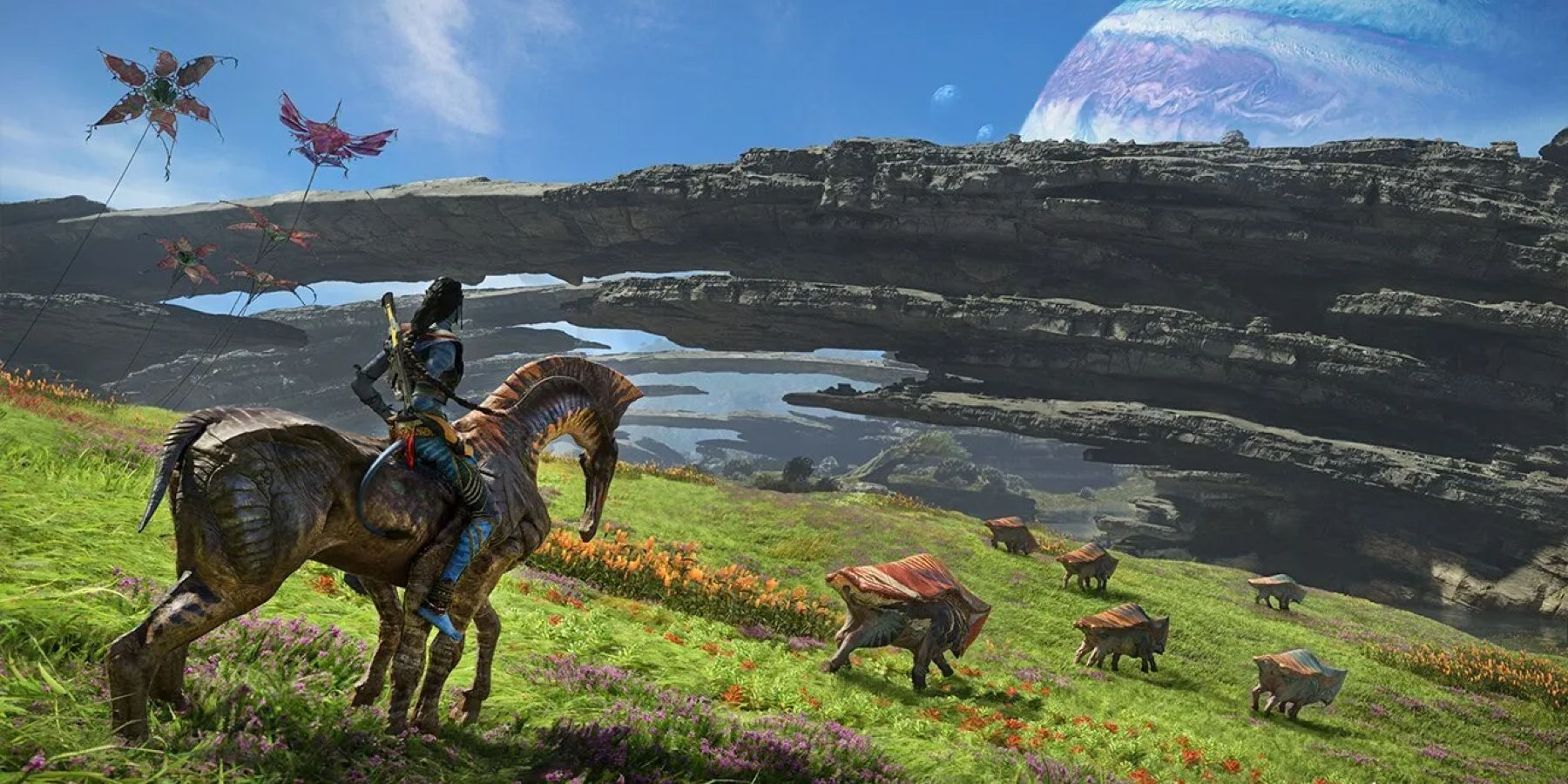
Avatar: Frontiers of Pandora Details PS5 Exclusive Features
Sony Interactive Entertainment showcases how Ubisoft's Avatar: Frontiers of Pandora will make players feel immersed while playing the game.
The best way to describe Frontiers of Pandora’s story is vapid and generic. It is a sliding gallery of side characters with no emotional core to invest in and a main plot that loses momentum the second it hands players the keys to the open world, never to recover. Our main villain is an RDA researcher by the last name Mercer, who is introduced at the start of the game and is trying to nest Navi sleeper agents throughout Pandora’s tribes. In the first few minutes, the program is cut, Mercer commits a handful of heinous crimes against the player’s Navi friends, and then disappears for a significant chunk of the game.
What's left is a story that spins its wheels for hours as the player jumps from tribe to tribe, amassing a resistance force of blue warriors - convinced almost entirely on the grounds of our main character being a special breed of heroic Navi - in order to take on a villain whose presence is never even felt in the first place. On top of that, almost every character in this game is entirely disposable and exists solely to hand out story missions. Frontiers almost feels industrial in the way it coldly dishes out side quests and tasks via NPCs at each village, as if each base is a conveyor belt of content for players to take on and not much else. Overall, everything here feels entirely by the numbers and aimless until the story has to refocus at the end to send it all home in a somewhat satisfactory way.
At best, Frontiers of Pandora adds nothing to the IP; at worst, Ubisoft completely misunderstands why Avatar resonates with audiences and shoots itself in the foot when transposing its game style onto this franchise. Frontiers is just about the opposite of what the Avatar movies are all about. For context, this is a film series with rich themes of environmentalism and a heavy hand of contempt for those who knowingly kill and take from nature in the name of profit. More specifically, the whole second movie, The Way of Water, is a scathing criticism of those who poach and exploit the otherwise docile Tulkun in order to make stock numbers go up and make the wealthiest back on Earth literally immortal. Jake Sully gives up everything to fight the RDA and fight for a better way because continuing to do business as usual killed Earth, and it will kill Pandora, too.
In the face of an IP filled with rich themes with something important to say, Frontiers of Pandora ignores the point entirely and goes on to have a gameplay loop where players spend most of their time killing otherwise docile animals to make arbitrary numbers go up so they can be as immortal as possible within the confines of the game. This would be business as usual for any other open-world gameplay loop, but it's embarrassingly ironic and tone-deaf for an Avatar game. Sure, anti-pollution sentiments are there because it's impossible to make an Avatar spin-off without them, but they're there superficially and treated as a checkbox for players to complete - ultimately ringing hollow. A betrayal of Cameron’s themes with the Avatar IP, seemingly stapled together as an attempt to get a slice of the highest-grossing film of all time’s pie, Avatar: Frontiers of Pandora isn’t just generic; it is downright cynical.
Avatar: Frontiers of Pandora is available December 7, 2023, for PC, PS5, and Xbox Series X|S. Game ZXC was provided a PC code for the purposes of this review.

